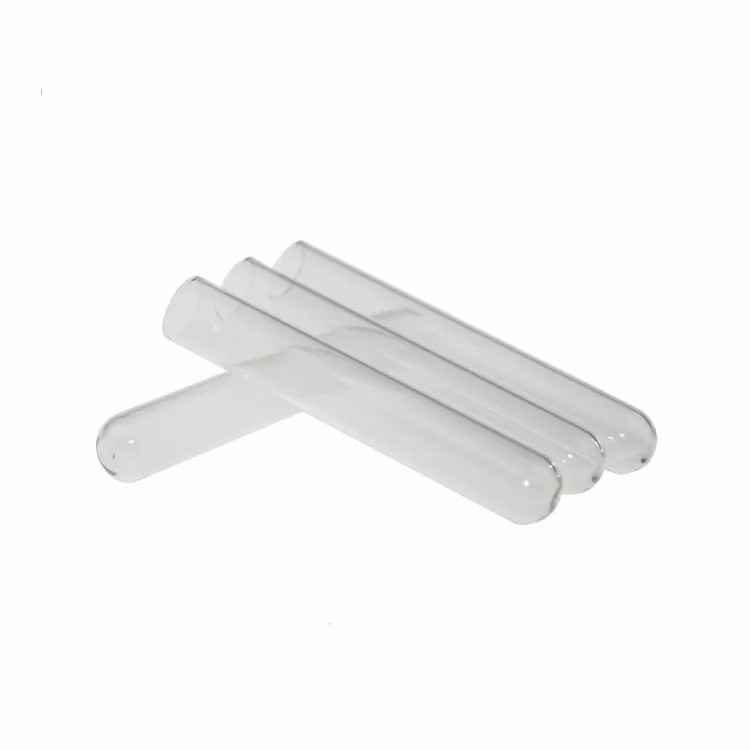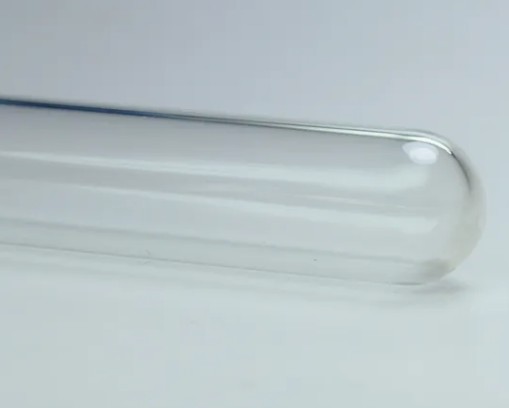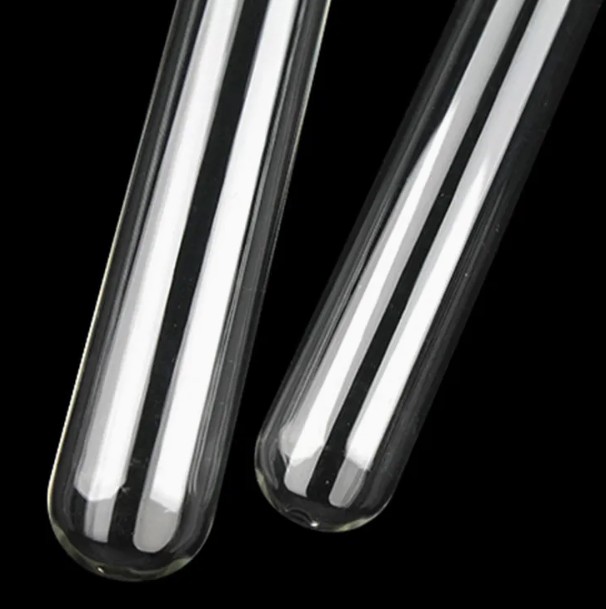Flat Bottomed Round Bottomed Transparent Glass Test Tube
Product description
Glass test tubes are fundamental laboratory apparatus used in scientific research, chemical analysis, and medical diagnostics widely. Combined with the unique properties of glass, their simple cylindrical designs make them indispensable for handling, mixing, heating and storing small quantities of substances. Below is a detailed overview of their design features, advantages, applications, and significance in modern laboratories.
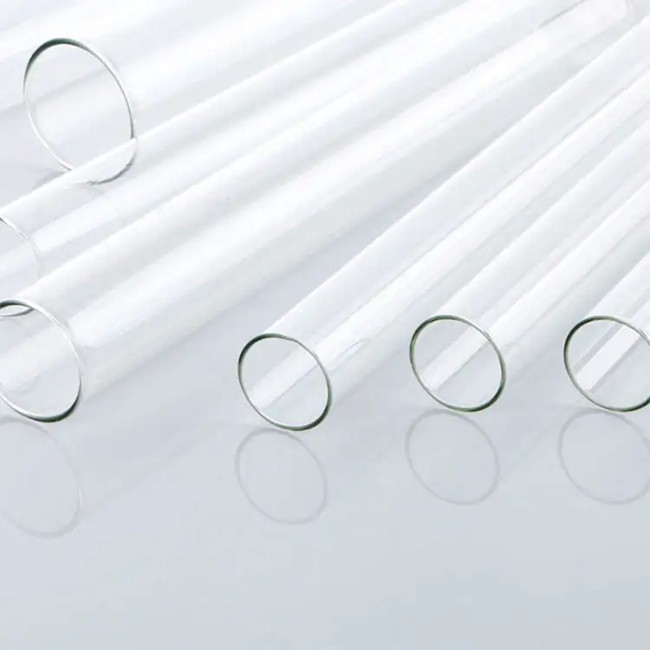
Design and Manufacturing
1. Material: Known for its exceptional thermal shock resistance and chemical durability, most glass test tubes are crafted from borosilicate glass (e.g., Pyrex®). This glass type contains silica, boron trioxide and alkali oxides, enabling it to withstand rapid temperature changes (up to 500°C) without cracking.
2. Production Process:
Melting: Raw materials are melted at high temperatures (1,600°C+) to form molten glass.
Molding: The glass is shaped into tubes using blowing or extrusion techniques.
Annealing: Tubes undergo controlled cooling in a lehr oven to eliminate internal stresses and enhance strength.
Finishing: Edges are polished for safety, and some tubes feature volume graduations or labeling.
3. Variants: Available in multiple sizes (e.g., 10–200 mm in length), with options including plain tubes, rimmed tubes for easy handling, and culture tubes with specialized shapes.
Key Advantages
1. Thermal and Chemical Resistance:
Withstand direct heating (e.g., Bunsen burners, autoclaves) and resist corrosion from acids, bases, and solvents.
2. Transparency:
Enable real-time visual monitoring of reactions, precipitates, or color changes.
3. Reusability and Sterilization:
Can be autoclaved, cleaned, and reused repeatedly, reducing waste and costs.
4. Versatility:
Compatible with centrifuges, spectrophotometers, and other lab equipment.
5. Cost-Effectiveness:
Affordable and long-lasting compared to disposable plastic alternatives.

Applications in Science and Industry
1. Chemistry:
Heating reagents, conducting qualitative tests (e.g., flame tests), or observing reaction kinetics.
2. Biology and Medicine:
Culturing microorganisms (e.g., bacteria), storing biological samples (blood, DNA), or performing diagnostic tests (e.g., urine analysis).
3. Education:
Teach basic lab techniques, such as titration or crystallization experiments.
4. Industrial Quality Control:
Test raw materials or products in pharmaceuticals, food, and cosmetics industries.
5. Specialized Research:
Serve as miniature reactors in nanotechnology or environmental science studies.
Quality Standards
High-quality glass test tubes adhere to international standards such as ASTM E438 and ISO 3585, ensuring:
Uniform wall thickness and dimensional accuracy.
Absence of defects (e.g., bubbles, scratches).
Consistency in thermal and chemical performance.
Medical-grade tubes undergo additional sterilization protocols for contamination-free use.
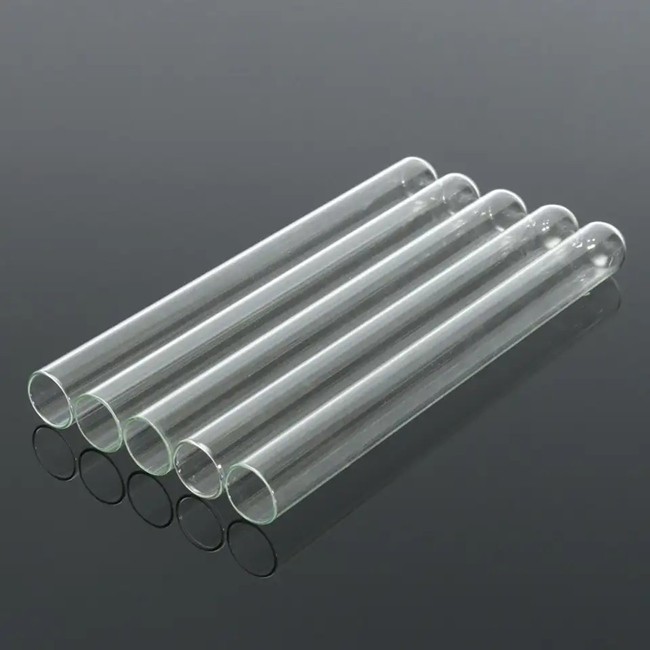

About Us
Yangzhou Huiying Glass Crafts Co., Ltd. is a professional engaged in the production of glass products at home and abroad enterprise. Mainly processing control glassproducts and heat-resistant glass bottle is given priority to aregular control bottle, cosmetic bottle, medicinal bottle, perfume bottle, glass tube, glass dropper and glass bottle printing. We also produce special gauge glass bottle production, and have a variety of supporting facilities required for production.
Recommended products
